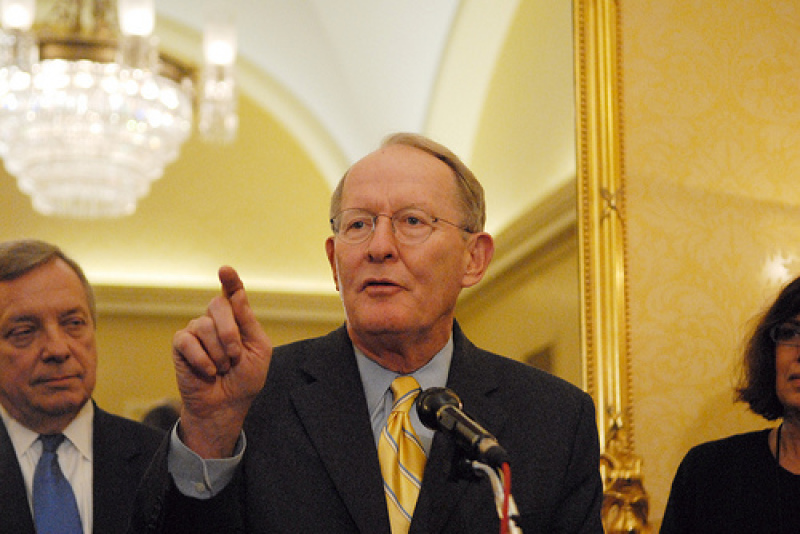
On Thursday, the Senate passed a revised version of No Child Left Behind (NCLB), an education law from the Bush-era, to return more power to the states when it comes to assessing the progress of schools, teachers, and students.
The Senate voted 81-17 to pass the Every Child Achieves Act, a bipartisan proposal backed by Sen. Lamar Alexander and Sen. Patty Murray. This new bill would rewrite 2001 No Child Left Behind, an education law that made nation-wide standardized tests the litmus test for progress in reading and math. It would keep the federal government from establishing specific requirements for schools like the Common Core. While Democrats wanted stronger accountability measures in the bill, the Senate bill passed as a result of negotiations to leave both sides satisfied.

Sen. Alexander is the co-sponsor of the Every Child Achieves Act.
The House passed its own version of the bill, called the Student Success Act, but only after it was amended without the support from Democrats. to decrease the role of the federal government in education.
Both the Senate and House bills maintain some features of NCLB, such as annual reading and math test requirements; and having test results sorted by race and income. Both bills also give states more flexibility in how to use test scores to measure school and teacher performance. However, the House bill allows federal dollars to follow low-income students between school districts while the Senate bill does not, a core issue of disagreement between the two chambers. The differences between the House and Senate bills elicit uncertainty of the future of the bill, as differences will need to be reconciled and compromises made in order for it to make it to President Obama.
"There are some important differences, and we'll have to work this out," said Sen. Lamar Alexander on the Senate floor Thursday.
When Barack Obama first ran for president in 2007, he promised to replace NCLB and gave Congress until 2011 to renew the law once he was in office. However, both the Senate and House failed to do so.
NCLB expired in 2007, but its mandates had continued to be implemented throughout the country. Obama and U.S. Secretary of Education Arne Duncan allowed states to apply for waivers to be given leniency to get around the law's harshest requirements; most states have signed this waiver so that schools in those states abide by the waiver's requirements.


















